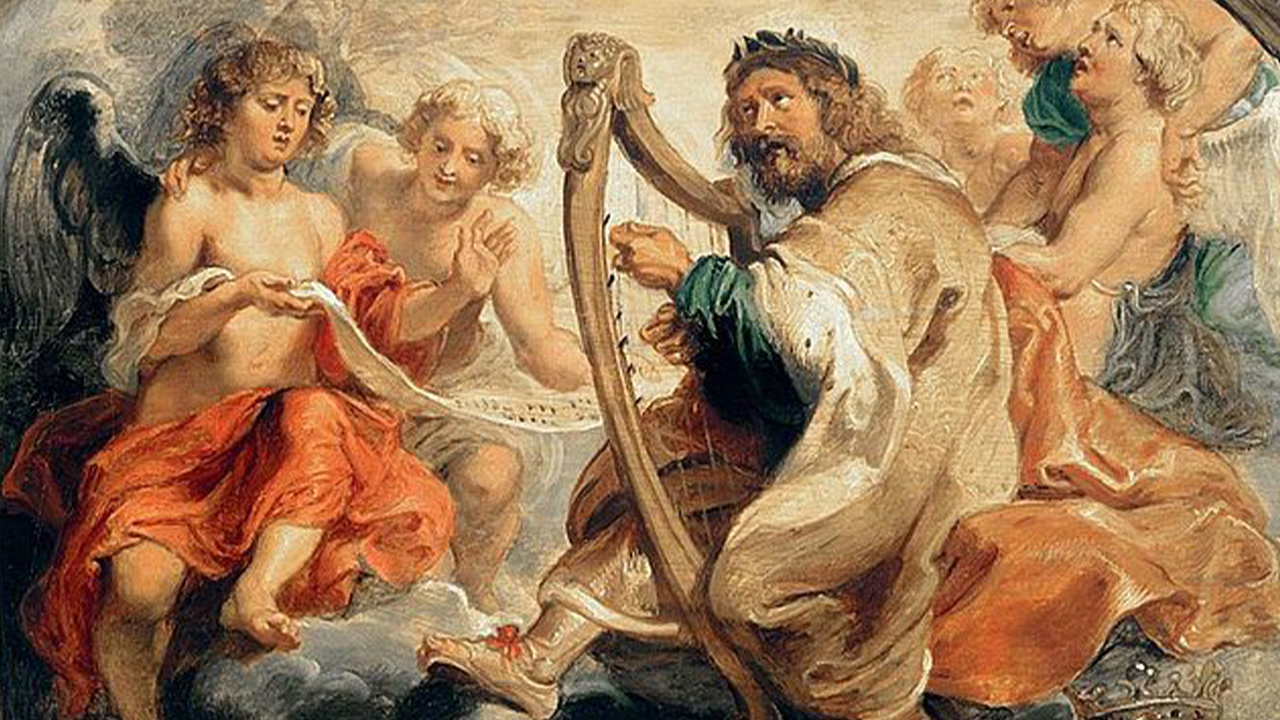King David
What the life of the Bible's greatest monarch can teach us about Jewish politics and statesmanship.

In a provocative and profound essay in this magazine (“A King in Israel,” May 2010), the late Michael Wyschogrod proposed that the Jewish state define itself as a democratic, constitutional monarchy. Israel, Wyschogrod suggested, should rename its head of state—the president elected by its legislature, who already plays a largely ceremonial role—and give him or her the title “Regent of the Throne of David.” This would not, he wrote, involve changing anything about the Knesset and other aspects of the political process. Without redefining its democratic nature, “Israel nonetheless can be declared a Davidic monarchy without a reigning king.” This symbolic action, Wyschogrod argued, “would build into the self-understanding of the state of Israel the messianic hope of the Jewish people, while excluding a messianic interpretation of the present state of Israel.”
The proposal was given very little attention by Jewish thinkers, and even less by Jewish politicians. Yet the essay, for admirers of this great theologian, is classic Wyschogrod. It puts forward a provocative statement, expressed in a way that may attract few allies, that nevertheless forces us to reflect on a profound, and often ignored, theological truth. In this case, the truth is that many religious Jews simultaneously celebrate the existence of a Jewish republic while praying three times a day for the advent of a messianic era featuring a restored Davidic monarchy.
We seldom reflect on the dialectical nature of this theological posture. If religious Jews believe that Israel should be both democratic and Jewish, Wyschogrod writes, “we must conclude that a constitution uniquely suited to a Jewish state should embody the political form through which this higher authority has been manifest in the Jewish concept of polity for the past three thousand years,” which means a monarchy of the line of David. Here we see the tension. “The deep Jewish longing for Davidic restoration, expressed so frequently and with such deep emotion in the daily liturgy that Jews have recited for thousands of years, in which we beseech God to see a descendant of David on the throne of Israel,” shapes the political imagination of religious Jews. The state of Israel, however, has no civic or political dimension that reflects that yearning, and this clashes with a religious Jew’s pride in the accomplishments of the Jewish people in founding their own state, as well as his proper sense that the state of Israel plays a central role in the future of the Jewish people. Hence the genius of Wyschogrod’s proposal: To be a constitutionally Jewish state, “Israel must understand itself as a monarchy temporarily without a king.” With the office of “Regent of the Throne of David,” one of the civic symbols of a Jewish state would embody the millennia-long yearning that has animated Jewish prayer.
Wyschogrod’s provocative proposal may be unrealistic. That should not prevent us from engaging his philosophical point. Any seriously Jewish political philosophy must consider the place of the House of David when reflecting on what it means for Jews to exercise sovereignty as a people.
Continue reading at First Things.
What the life of the Bible's greatest monarch can teach us about Jewish politics and statesmanship.
What the life of the Bible's greatest monarch can teach us about Jewish politics and statesmanship.

